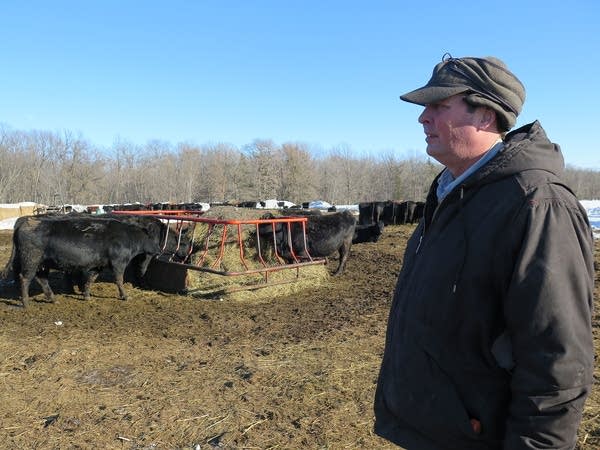DNR: Irrigation wells in Pineland Sands don’t need in-depth study

Tim Nolte looks out over his herd of cattle on his family's farm near Sebeka, Minn., in February. The Minnesota DNR decided this week that his proposal to irrigate some of his land for crops does not warrant an in-depth study.
Kirsti Marohn | MPR News file
Go Deeper.
Create an account or log in to save stories.
Like this?
Thanks for liking this story! We have added it to a list of your favorite stories.


